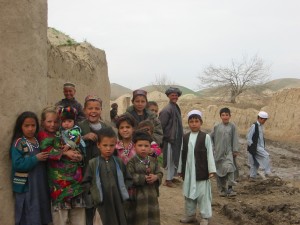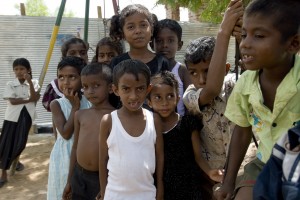A Human Rights lawyer’s personal battle with war and disaster
In moments of reflection during the silences that briefly emerge between the noises of my work? between the crackle and fire of guns and bombs in a war zone and the torrents and thunder of rains and winds in a disaster zone, I try and get moments of meditation going so I can re-balance myself amongst the chaos and conflict that surrounds me in the war zones, in which I live. After 15 years of the constant hum of war and fleeting moments of peace, I have found that an amazingly clear relationship has emerged between who I was born to be and what I do in this life. I never searched for this affinity, it just happened. Since coming to this realisation that I am living the principles of a good person, I feel much more at ease with my path in this life.
When I first started to work in places like Bosnia, where there had been war crimes and rape were being committed among ethnic groups (Bosnians and Serbs and Croats) who had formerly been neighbours and friends or in Iraq within families and communities who formerly had been all Muslim, but were now divided and killing each other among the Shia, Sunni and Kurd sects of Islam, in Sri Lanka, where Tamils and Sinhalese fought and died over access to power and recognition over a small island and Afghanistan where violence is used to achieve peace and western concepts are used to build an Eastern democracy and where in all places women and children become victimised in the conflict and disasters, I felt that nothing makes sense, nothing is fair and nothing is safe.
All of the above experiences showed me that at the core of most conflicts and disasters in the world, there is a blatant disregard for

"Afghanistan where violence is used to achieve peace and western concepts are used to build an Eastern democracy"
truth, justice and peace, the concepts on which the mul mantra (mool) stands. If one looks at the mul (meaning root) the tenets of which form the basis for many religious texts, the elements of “one truth”, “justice for all” and “guarantee of non-violence” are clearly set out as the trinity of defining concepts for all. So this is it, I proclaim! And then everything else becomes so easy. Choices about what to do in terrifying conditions and difficult circumstances become easily made, when one realises that there is one source for all beliefs and that equality and non-violence are the foundations for all beliefs.
Throughout my work, the principles of equality and non-violence, seem so obvious to me that this is what I am supposed to be doing, so why even think about how my work lies in confluence with ethics and principles? I believe that one must reflect on these affinities from time to time since the challenges and adversity that we face every day as we witness genocide and destruction and this can shatter that delicate relationship and make you unbalanced and then irrational in your understanding of the world.
One has to keep these values at the centre of their mind while all of the chaos surrounds oneself, otherwise we would go mad. There has to be a base assumption from which we operate so that we do not lose sight of reality and sense in the world. I can truthfully say, since I guess it is the work that I am engaged in, that equality and non-violence have not been as common as I wished it could have been and I mean this, both from the perspective of the actions of people from the war zones and from those who aim to help them.
I suppose that I have come to realise that the very definition of a war and disaster zones do not include as one of its aims or features equality and non-violence. So I see things like, “women in prison,” locked up as guarantors for bail that was set for their sons who are accused of crimes, but who have fled from police custody in Northern Afghanistan, people bathing in a polluted river since they have no access to water and sanitation facilities in Southern Sudan or families running away from places engulfed in clashes between government and rebel forces in Sri Lanka. I realise that I am being challenged to maintain my faith, while still dealing with the reality of violence and inequality. And so the real question is what does one do with that challenge?
The only thing that has helped me is to believe that I am only a small piece of the larger puzzle that is being put together and so I cannot always see the “what and why” of the situation. But I do know the “where, who and how.” And so I have to keep doing the work with my principles in my mind and know that it is what it is meant to be.
Jasteena Dhillon is an international Lawyer and legal researcher who has worked on human rights and development issues in conflict and post-conflict settings all over the world including South Africa, Balkans, Afghanistan, Iraq, Sudan and Sri Lanka . Currently, she teaches law in Toronto and previously she was a research Fellow at Harvard University


June 24, 2011 at 9:09 am
Brilliant.The writer has realized what it all finally boils down to.The Buddhist Philosophy has the answer by indicating the way to final,eternal bliss of Nirvana or absolute nothingness when both mind and body disappears for ever.The truth is realized when one encounters human misery and injustice that prevails in the world.The writer could find the answers to the questions ‘what’ and ‘why’ by reading and understanding the teachings of the Buddha.Meditation is a certain path to peace and tranquility of the mind.